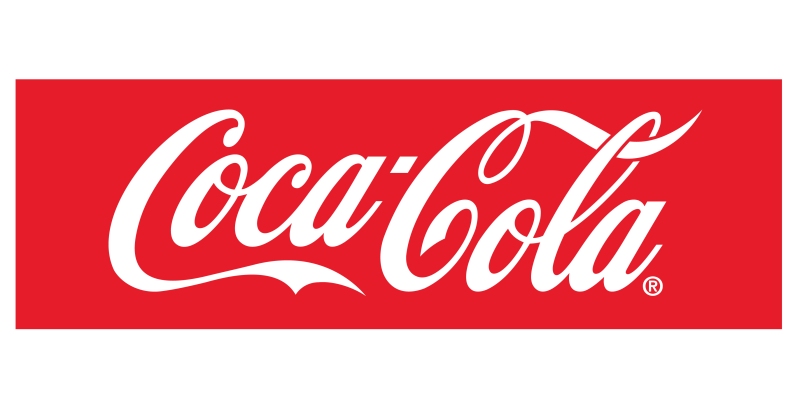Back to Basics #23: Managing Your Brand
/You've probably heard the phrases “personal brand” or “brand identity” before. But what exactly do they mean? How does someone put forth a brand identity or a personal brand, and how does it affect your business? In this Back to Basics, we'll talk a bit about managing your personal brand. With a few easy-to-understand tips, you'll know exactly what these terms mean, and how you can leverage the concept of branding to increase your presence online.
Brand Identity
Brand identity is something that you probably already know about—you just aren't aware of it. As an example of brand identity, let's take a look at Coca-Cola.
When you think of a company like Coca-Cola, what do you think of? You probably imagine the telltale red and white color scheme, the flowing font, and perhaps even their Christmas ads come to mind.
Well, all of these things are a strategic part of their brand identity. Coca-Cola has done a masterful job at creating an instantly recognizable brand image that people are quick to take notice of in any situation. The company wants to keep your attention, whether you're looking for a vending machine between classes or deciding which sodas to purchase from the supermarket. When you see that red and white, you know it's going to be Coca-Cola, and you're instantly drawn to purchase the product (that is, assuming you're not a Pepsi person!).
Now, all of this doesn't necessarily mean that brand identity consists solely of a color scheme and unique fonts. Logos also play a big part in it. Your perceived company image as a whole is a big part of it, too. Your presence on the internet and in your community play enormous roles. Simply put, when people think of your brand, the images and feelings that pop up are how they perceive your brand identity. You want to create something solid, recognizable, simple, and memorable. You also want to be consistent across all your platforms. We'll get to more of that in a minute. First, we'll talk about your “personal brand.”
Personal Brand
The personal brand is something generally associated with an entrepreneur, but it doesn't necessarily have to be so. Your personal brand can apply to how you manage your employees, as well as how you choose to interact with customers. Basically, your personal brand should prominently display your talents and downplay your weaknesses—customers and employees should feel that you're capable and understanding, rather than unsure or defensive.
Managing your personal brand can be tough, however, especially in online spaces. It's easy for people to slip up and say something they didn't mean to while caught in the turmoil so often found on social media. Your employees might do the same. Why? Because your personal brand often takes a backseat to emotion, especially when things get tough—whether you're responding to a poor review or you're getting just a little too personal with hot-button issues, it's important to remember to keep your cool. You don't want to sacrifice all the hard work you've done on your personal brand only to be embarrassed at comment you made in a time of emotional strain! It's important to keep an eye on how you're coming across online, and to monitor how people are perceiving you. Even the most careful business owners can probably find an area that they need to work on.
Managing Your Brand in the Community
So now that you know about brand identity and your personal brand, what are some good ways to manage them? We've mentioned the many places you need to include your brand—from your local presence in your community to social media online.
A good way to start is to make a list of your personal values. For example, what do you think is important for you as a business owner? Some examples might include:
- Providing excellent customer service
- Responding to customer concerns
- Providing new and exciting products regularly
- Delivering news and updates in a timely manner
- Rewarding valued customers
- Promoting employees and building workplace morale
There are so many things you could list here. It all depends on what you, as a business owner, feel is the most important thing to you.
You can also talk to your employees about their workplace. Many companies focus too much on the customer and don't bother with assessing their internal company health. When the workplace is toxic or not well run, many people get angry about their jobs. Not only does this result in high turnover (and takes time to train and replace the employees), but the customers can easily end up with the short end of the stick: They might have to wait longer for service or get poor service from uninvested employees. You might think of asking:
- Do you find your workplace to be comfortable?
- Do you feel your duties are taken seriously?
- Is the workplace friendly and accommodating?
- Do you need help with further training?
- How do you feel you are doing with your customer service skills?
Et cetera.
Managing Your Brand Online
Managing your image online is a bit more complex than it is to manage in person. Many times, words that you type online can be misinterpreted—whereas in person, it's easier to clarify your intentions. You can also accidentally post to the wrong social media accounts. You might get too invested in a particularly heated conversation or debate and want to defend your views. You might get a poor review and feel inclined to respond to the reviewer angrily. The immediacy of the internet is what makes all of this so easy—but it's so hard to erase. In fact, it's nearly impossible.
Ask yourself:
- Am I suited for social media management? If not, do I have the budget to hire someone for assistance?
- Do I understand the implications of putting negative words and ideas into cyberspace?
- Do I know how to defend myself without resorting to petty words?
- Do I have a plan in place should there be a PR crisis?
If you think about these important things before you begin posting, you'll be much more likely to manage your brand in a way that will make your customers happy.
Another aspect of managing your brand online is how you choose to present your business's image. Just like the Coca-Cola example, you need to present an image of professionalism and attentiveness to detail. Here are a few questions you will want to consider if you want to have a healthy brand image:
- Does my website look professional? If not, do I have it in my budget to redesign it?
- Are customers easily navigating my website and finding the information they need?
- Do my social media accounts match the name and color scheme my website?
- Do I have the dedication to update my social media regularly, and to engage with my customers?
- Am I using a consistent voice (i.e., serious, casual, technical, etc.) for all of my platforms?
Hopefully this clears up some of the mystery surrounding brand image and management. It's an important thing for business owners to understand, whether you're a Fortune 500 company or a local “mom-and-pop” store. We all need to present ourselves as professionally and openly as possible!
If you can think of any other tips for managing your brand, leave them in the comments below!





